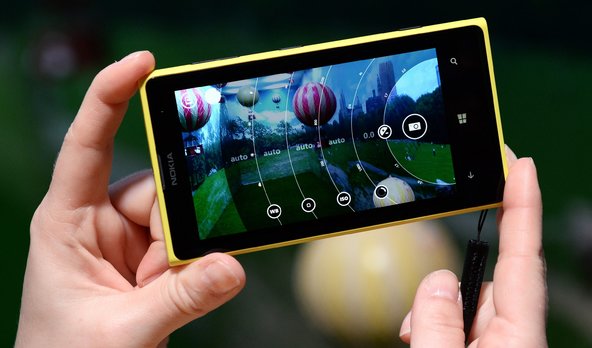Microsoft has gone ahead
and made it official by slipping a $7.2 billion ring on
Nokia's finger to acquire the Finnish company's phone business. The deal, which
had been rumored for some time, puts that last big piece into place for
Microsoft to have end-to-end control over the Windows Phone ecosystem. In essence, Microsoft has
become Apple.
Except it isn't Apple. Certainly, the Nokia deal is basically an admission that Apple's approach in
mobile — that is owning and operating the hardware, software and services
around its devices — are best one. But Microsoft and Windows Phone are
different animals from Apple and iOS. Besides ecosystem and market share, the
companies have wildly different cultures.
True, Microsoft is undergoing a top-to-bottom organizational shift to adapt its culture, and having 32,000
Nokia employees (including 18,300 who are "directly involved" in
manufacturing) will inject a little Finnish sauce into Redmond. But you don't
just become Apple by adopting its strategy. And if Microsoft needs reminding of
that, it should look no further than its own Surface tablets, which have failed to become the viable iPad
competitor they were meant to be.
Apple, Google and Microsoft
In other ways, the deal makes Microsoft more like Google, since both companies acquired a hardware partner (in Google's
case, Motorola) to give them some device clout and beef up their patent and IP
portfolios (Microsoft's was actually already pretty big). At the same time,
they have to keep existing partners happy. HTC, Samsung and Huawei can't be as excited about
Windows Phone today as they were yesterday.
But when Google acquired Motorola, it was a struggling player in
the crowded field of Android handset manufacturers. By contrast, Nokia is by
far the biggest maker of Window Phones — again making Microsoft more like Apple
in bringing that manufacturing in-house.
There is another pesky problem that some others have already pointed out: We already have an Apple. Smartphone users who are willing to
pay a premium to buy a device with a tight ecosystem (not a healthy app
catalog) have, for the most part, already done so. How can Microsoft hope to
make future gains with less of the market to work with?
Rising From Asha
The
answer lies in a key part of the deal, which is Nokia's feature phone business.
As part of the acquisition, Microsoft gets Nokia's Asha-based handsets and the
right to market them under the Nokia brand. Microsoft says it wants to use Asha
phones as an "on ramp" to Windows Phones.
The
Asha phones could play an important role in overseas markets, particularly
places like India, Brazil, China and Russia, which a Nielsen study recently found were areas ripe for
smartphone growth. While it's hard for any smartphone maker to stand out over
others in these areas, there are two brands that have some pre-existing clout
in those markets: BlackBerry and Nokia.
BlackBerry
obviously has its own problems, and the generational shift from the old
BlackBerry OS to BlackBerry 10 hasn't been much of an on ramp for those phones,
at least not yet. Looking at some
recent numbers, however, Windows Phone is having better luck, and if Microsoft
could come up with some key services that cut across the Asha/Windows Phone
divide, it could push the platform even further.
That's
a big if, though, and looking at Microsoft's previous attempt at creating
robust feature phones, the ill-fated Kin
line, doesn't give much hope. But that product failed because it targeted the
wrong market (kids) at the wrong time (the iPhone was ascendant). Played right,
Asha could help solidify Microsoft's mobile game.
The Last Mobile War
Buying
Nokia's device business isn't a genius move. In fact, it's incredibly obvious —
but at least it puts Microsoft on par with the other major mobile platforms.
That's a good thing for Windows Phone, but the question is: Is it
forward-looking enough?
By
emulating Apple's ecosystem strategy, I can't help but think Microsoft just put
into place a great strategy for winning the last war. The smartphone market
certainly still has lots of opportunity, but it's much closer to a finished
work than a blank canvas. Microsoft's now ready to put its mark on mobile with
Nokia's phone business, but what about wearables, data-based services and
in-car integration? The biggest innovations yet to come in mobile have nothing
to do with phones.
It's
an interesting coincidence that Microsoft's acquisition of Nokia phones comes
about a day before Samsung will debut one of the most anticipated gadgets of
the year: the Galaxy Gearsmartwatch,
which connects with your phone to open up entirely new experiences with apps.
Which story do you think will better define the mobile in the years to come?
















